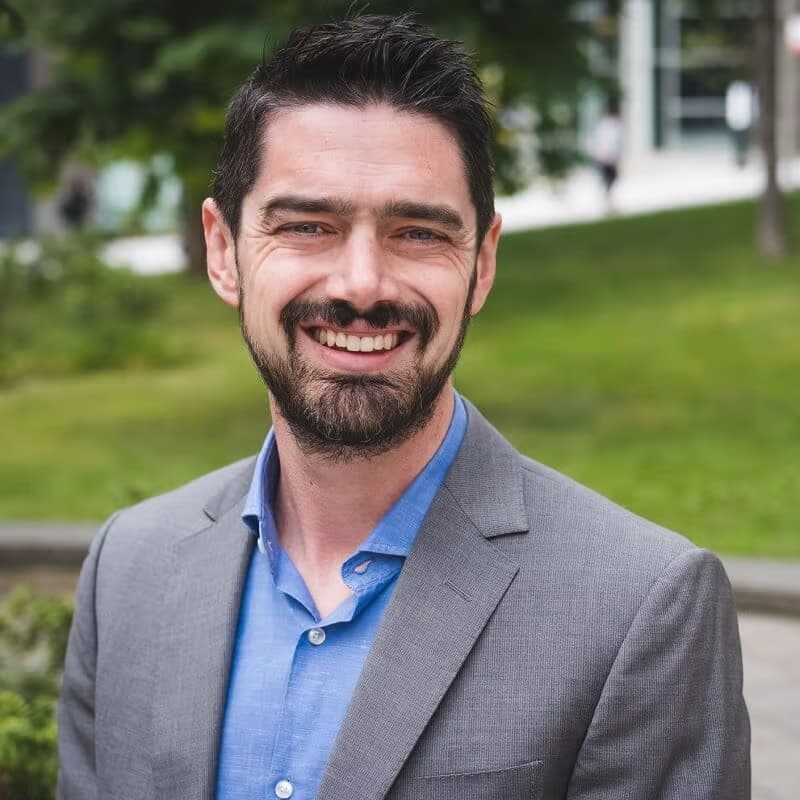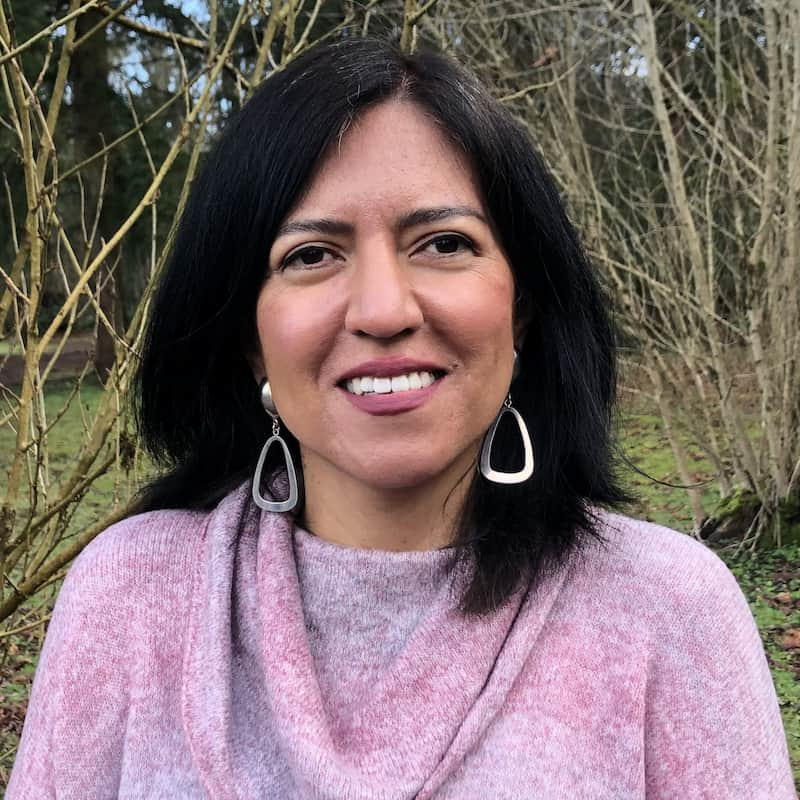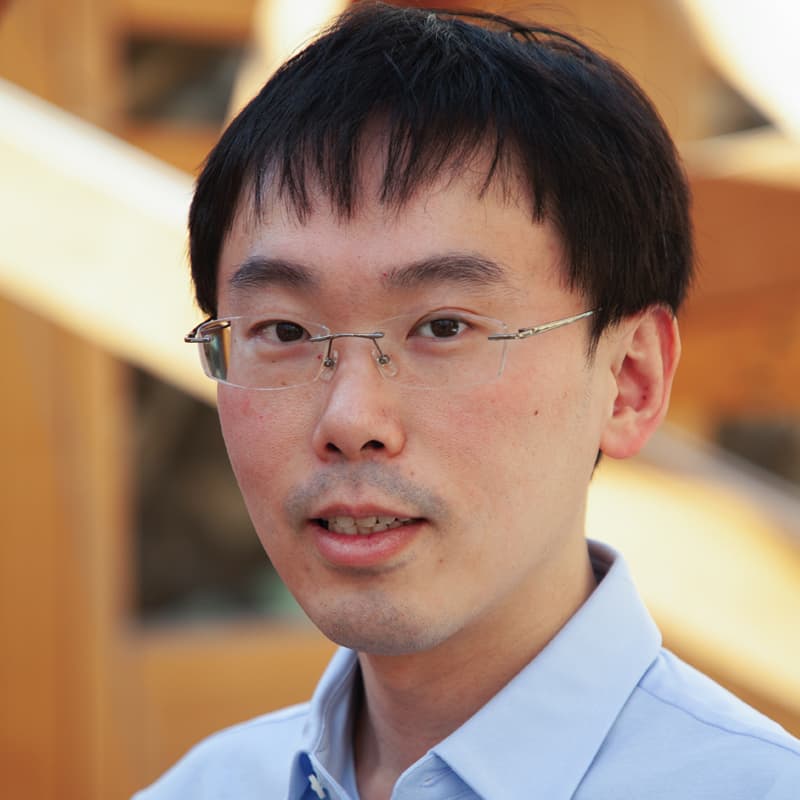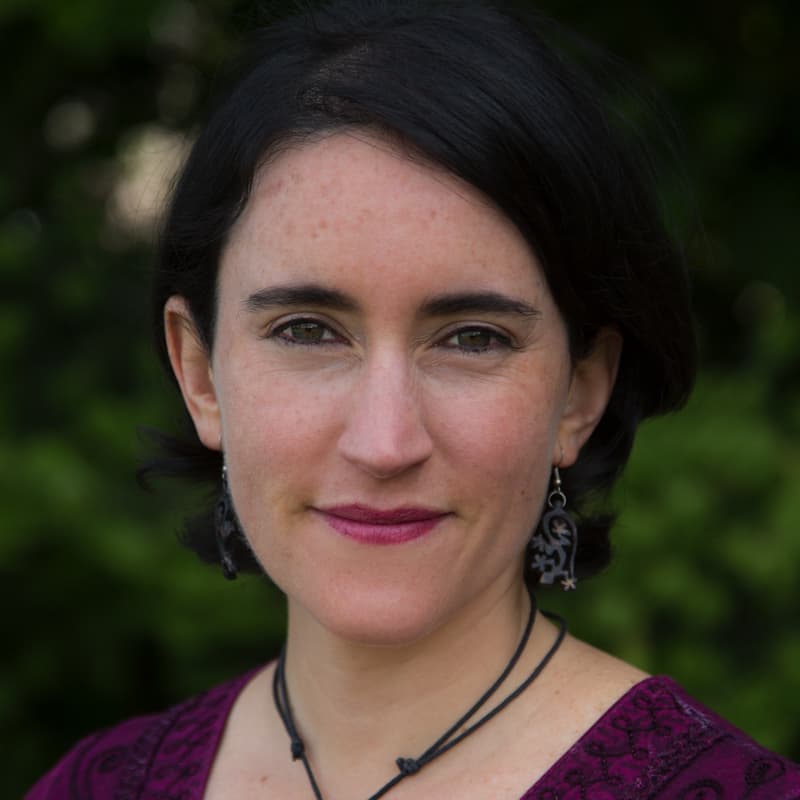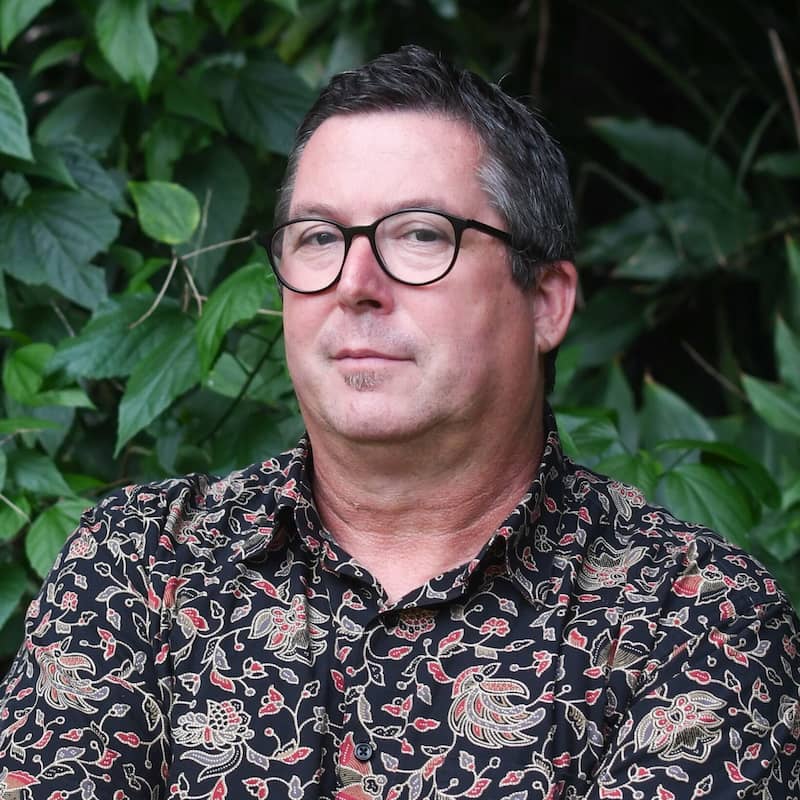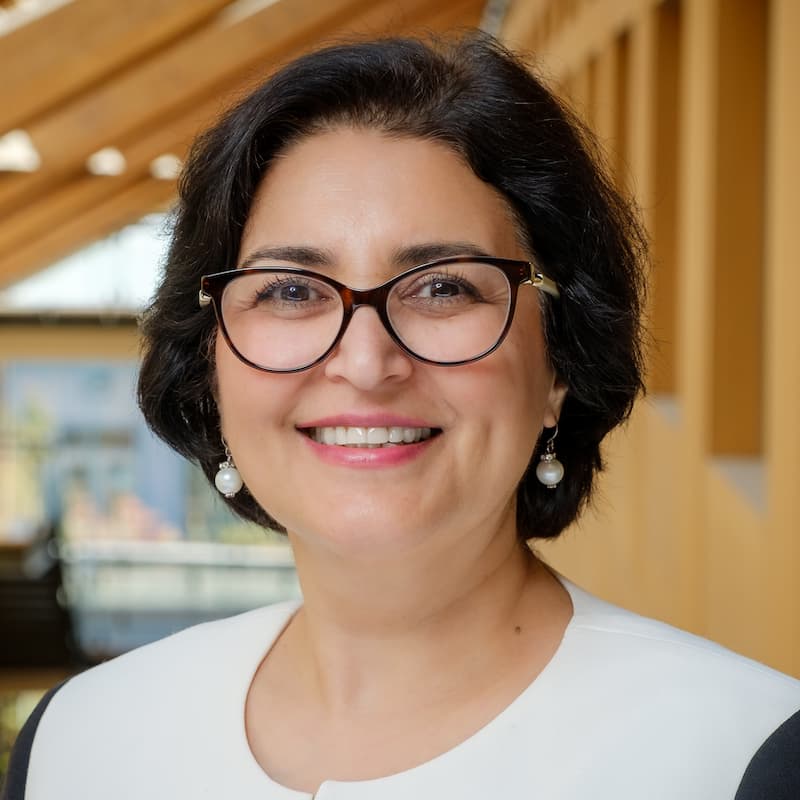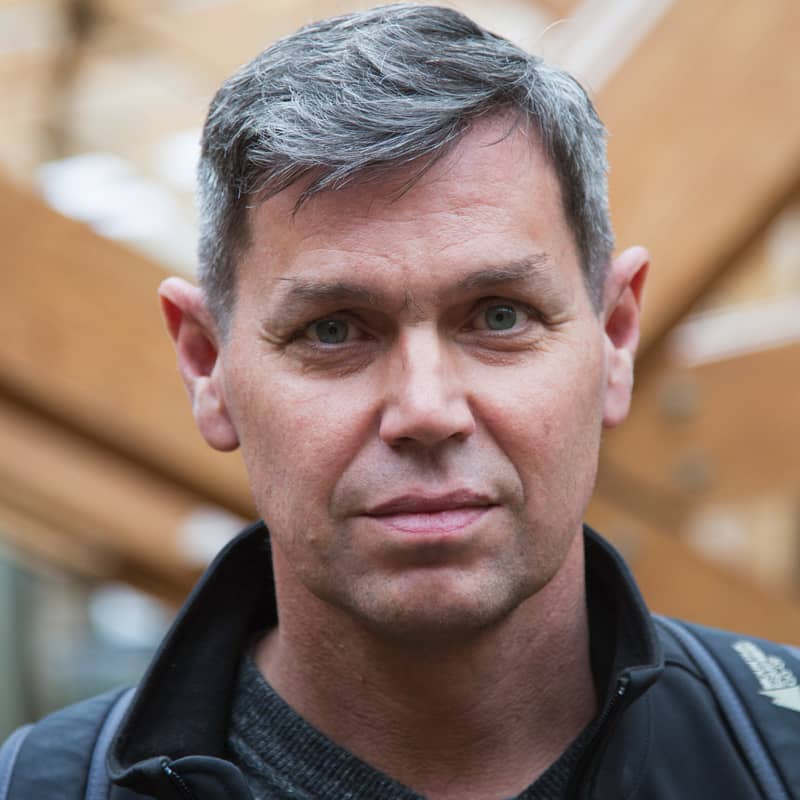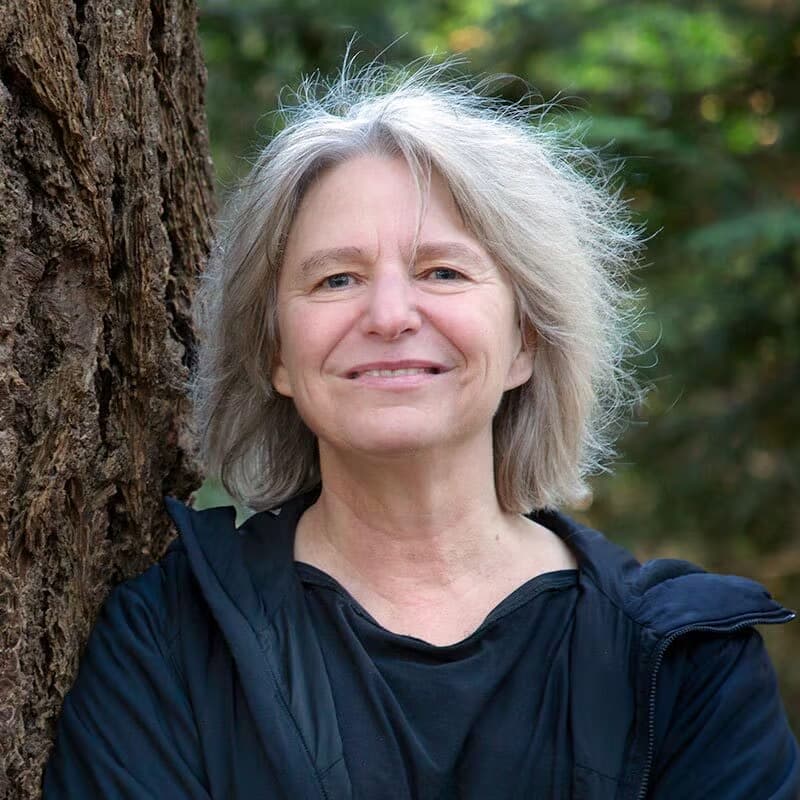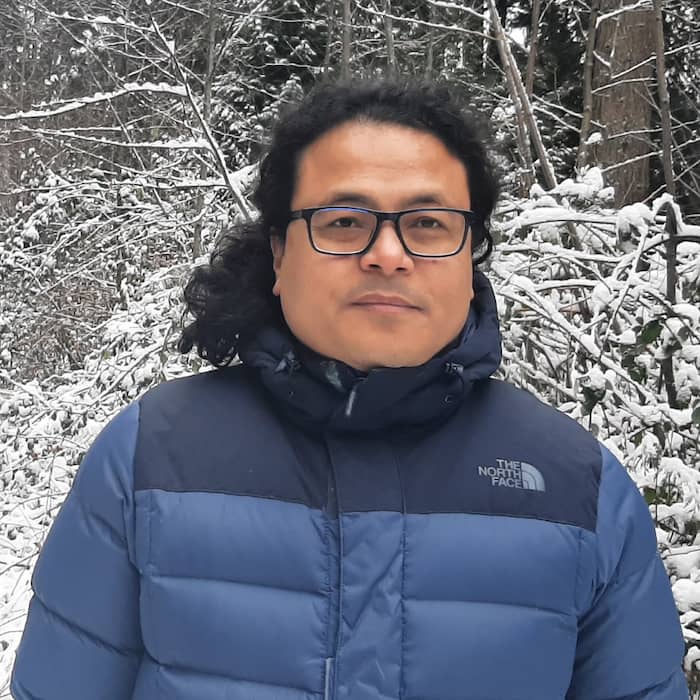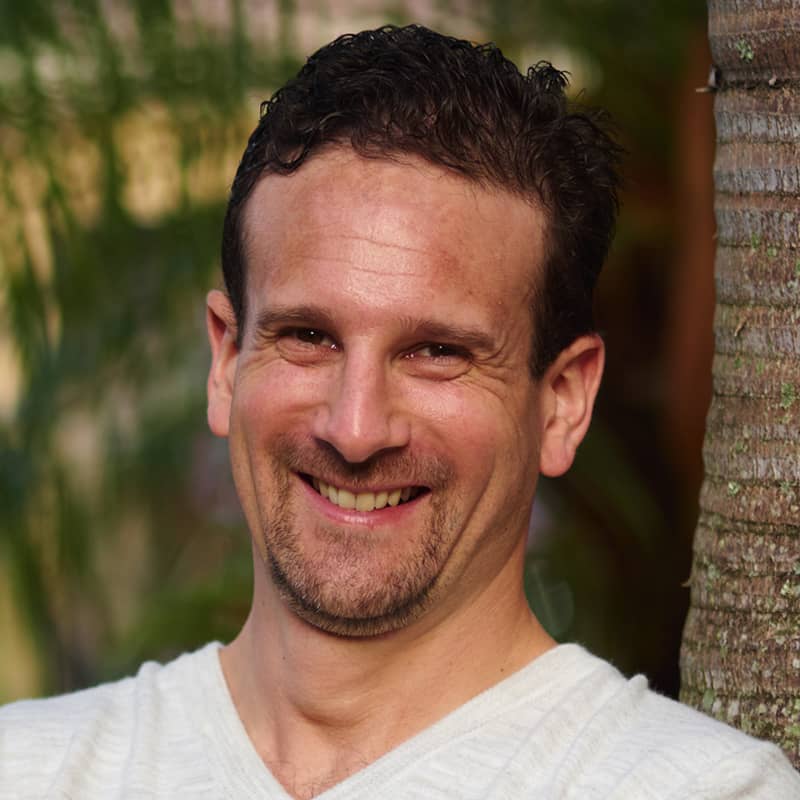
Varhola, Andrés
Program Director of Forest Management and Forest Operations programs,
Assistant Professor of Teaching
Department of Forest Resources Management
Forest Sciences Centre
Office 4613
2424 Main Mall
Vancouver, BC V6T 1Z4
Canada
work phone: 604-827-5981
Research Areas:
Education and Pedagogy in ForestrySustainable Forest ManagementTechnology and InnovationSpecific Interests: Forest Management, Forestry Education, Silviculture, Hydrology, Remote Sensing
I am a Forest Engineer from Universidad Austral de Chile, with 5 years of work experience in the Ecuadorian forest industry as Forest Management Head of Aglomerados Cotopaxi. My passion for both forestry and education led me to pursue a PhD in the Faculty of Forestry at UBC, which I completed in 2013. I have been devoted to teaching there ever since, with a strong focus on enhancing student motivation and the permanent learning of key competencies.
Teaching
I have taught a wide range of courses in Forestry, Statistics, Earth Sciences, Computer Applications, Business and Professional Development. The courses I currently teach at UBC are:
- FRST 100 – Sustainable Forests
- FRST 231 – Introduction to Biometrics
- FRST 423 – Forest Management Planning
- FRST 456 – The Role of Natural and Planted Forests in the Global Bioeconomy
I am also a regular guest lecturer in:
- NRES 100 – Pursuing Innovative Solutions to Big Questions
- NRES 103 – Pathways in Natural Resources
- FRST 110 – Land One: First-year Integrative Seminar
- FRST 385 – Watershed Hydrology
Educational Leadership
My areas of interest in Educational Leadership include the dissemination of innovative teaching techniques, the creation of the best instructional materials with cutting-edge technology, the enhancement of student motivation as a key to high performance and the use of humor in all aspects of course delivery. As Program Director of the Forest Management and Forest Operations majors, my responsibility is to make sure each of our graduates meets the competencies required to become a Registered Professional Forester. My most exciting project underway is to make my book Excelling in Life an Open Education Resource (OER) for all UBC students to become proficient in Microsoft Excel. I am the creator and organizer of the Teaching and Learning Seminar series at UBC Forestry, which every year features high-caliber speakers —instructors and students— that enlighten us on hot topics in pedagogy. I ultimately wish to have a broad influence on improving education internationally at all levels of instruction.
Research
My doctoral research project involved the use of remote sensing to evaluate the effects of canopy cover loss on snow dynamics in the interior of British Columbia. More specifically, I linked Landsat and LiDAR data to characterize forest structure changes produced by mountain pine beetle across a large watershed, where prototype ultrasonic range sensors were deployed to monitor snow accumulation and ablation. While the increased risk of flooding resulting from clearcutting due to more snow accumulation and faster melting has been well documented, I was able to estimate a suite of key canopy structure variables used for hydrologic modeling at a pixel-by-pixel level in the entire watershed. This represented a major methodological improvement for hydrologic modeling, increasing our ability to more accurately predict the impacts of widespread insect outbreaks on water resources.
While my role as Assistant Professor of Teaching does not require active research in my applied disciplines, I have continued to collaborate in graduate student committees and co-author papers in the topics of remote sensing, silviculture and forest management. My research interests in pedagogy currently involve behavioral studies to evaluate the effect of teaching practices on student wellbeing and performance.
Projects
Excel book Open Educational Resource (OER). Supported by the Forestry Teaching Innovation Fund (FTIF), we are currently working on a project to transform my book Excelling in Life into a format accessible to all UBC students via Canvas, aiming to later develop a campus-wide elective course for credit based on its contents. The lack of Excel knowledge is a problem affecting society in general, and this project will attempt to solve this deficiency by starting with our own students, staff and faculty.
Student motivation. In the past few terms, I have used the Motivation & Engagement Scale for University and College, by Australian researcher Andrew Martin, to quantify motivation and engagement in a few of my courses as related to eleven key factors; data was analyzed as part of a SoTL Seed project and will be considered for publication soon.
Curriculum development. As Program Director of the Forest Management and Forest Operations majors, I have embarked in a thorough review of program contents and curriculum mapping to streamline accreditation renewals with the Canadian Forestry Accreditation Board (CFAB) and obtain accreditation with the Society of American Foresters (SAF). The project will better link course learning outcomes with key competencies required by accreditors, enhance the connections between courses, and ultimately improve the learning experience of our students with a purposeful focus on becoming top professional foresters.
Canvas Outcomes. The Canvas Outcomes tool is one of the most useful —yet underutilized— pedagogical resources we have available. It allows instructors to link learning outcomes with specific questions used in all assignments and tests to track student learning mastery at the group and individual levels. Supported by a Students as Partners Fund, we tested the tool and surveyed students about its benefits; data is being processed and guidelines about its proper use will be developed.
Awards
National Best PhD Thesis – Canadian Remote Sensing Society 2013
Best PhD Thesis – Faculty of Forestry, UBC 2013
Killam Graduate Teaching Assistant Award – Faculty of Forestry, UBC 2009
Best Representative – Faculty of Forest Sciences, UACh 2004
Best historic GPA at graduation – Faculty of Forest Sciences, UACh 2001
Collaboration Award – Canadian Forest Service 2014

